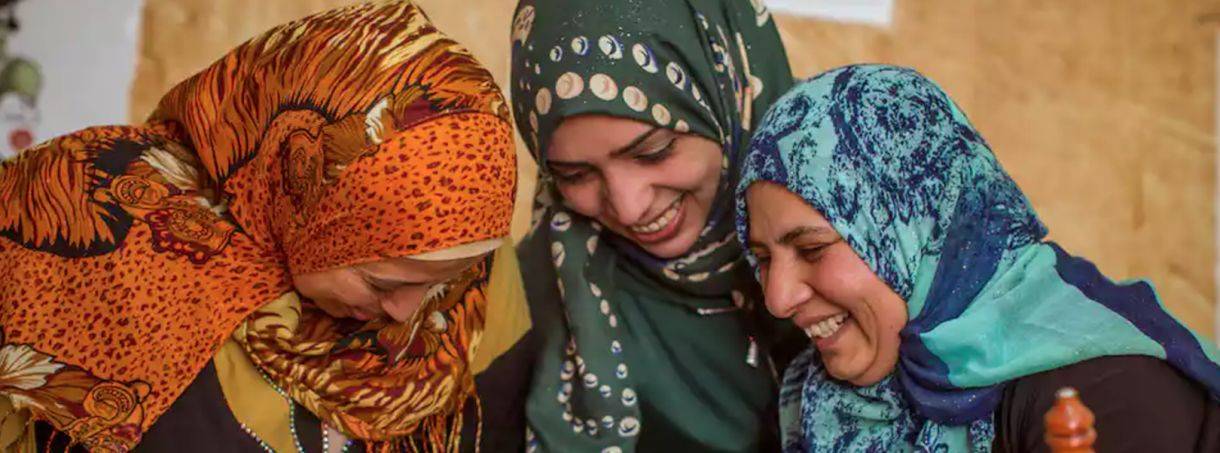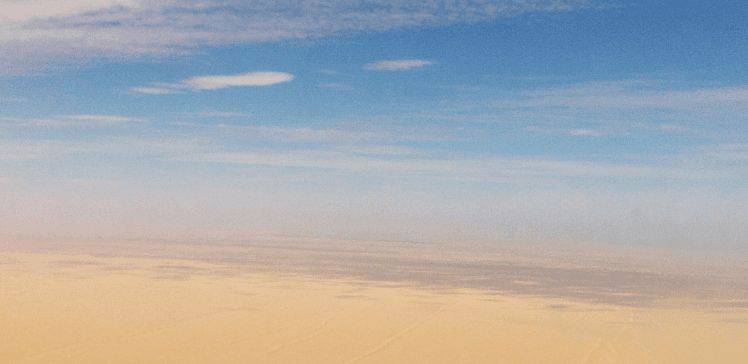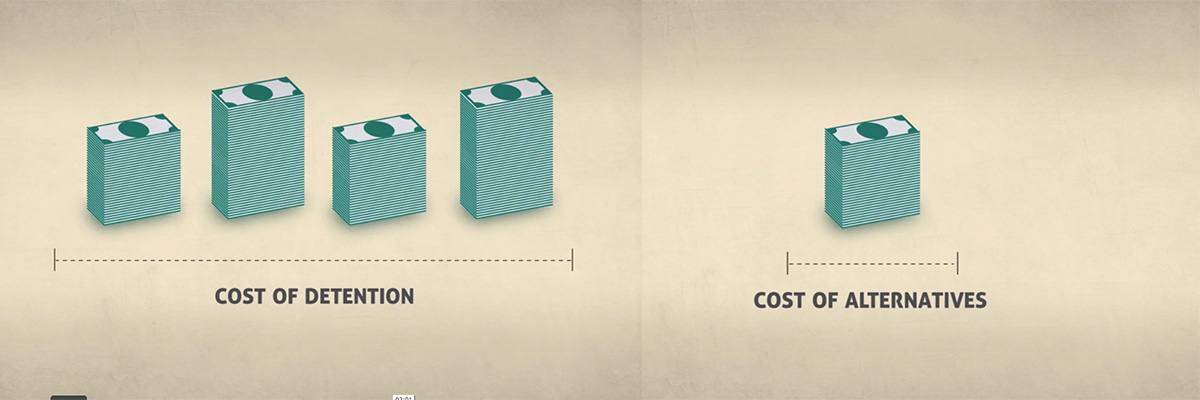These are just some of the examples of alternatives to detention – ie any law, policy or practice by which enables people to live in the community across the Middle East North Africa Region (MENA), without being detained for migration-related reasons.
—
A fashion start up is providing productive, dignified work for women living as refugees in Jordan? What a great alternative to pointlessly detaining women who can now contribute to the economy while building their own skills. Read more here.
Image published by the Guadian. Asma Aradeh, employed by social enterprise SEP Jordan inspects embroidery work together with two colleagues. Photograph: Faras Oran
The Khartoum Process, established in 2014 aims to reduce the arrival of trafficked migrants to Europe’s southern borders through enhanced border security, upgraded national legislation and disrupting or dismantling migrant smuggling and human trafficking networks in Djibouti, Egypt, Eritrea, Ethiopia, Kenya, Sudan, South Sudan and Tunisia. Read more:
- Betts, A. and Milner, J., The Externalisation of EU Asylum Policy: The Position of African States. Oxford: Centre on Migration Policy and Society (2006) pp 3-4; Reitano, T., Adal, L.
- Shaw, M., ‘Smuggled Futures: The Dangerous Path of the Migrant from Africa to Europe’
Under the Moroccan Migration Act (2003), a court order is required for the detention of foreign nationals beyond 24 hours, this can be extended for up to fifteen days, plus ten additional days (Art. 35). These kind of time limits on the use of detention set up a presumption of liberty for all migrants in Morocco which compliments the Constitutional safeguards against arbitrary detention and guaranteeing the right to information about grounds for detention, legal assistance and communication with relatives (Art. 23 Moroccan Constitution 2011).
In September 2014, the Ministry of Labour announced that [recognised] refugees in Algeria could apply for a residency permit (certificat de travail) as well as an ‘authorisation to work.’ Another great example of alternatives being used in order for refugees to be able to meet their own basic needs. Read more in: Flux migratoires “des africains” en Algérie: Alger partagé entre enjeux sécuritaires et impératifs humanitaires, September 16th, 2014.
Alternatives are up to 80% less expensive than immigration detention (IDC, 2015)
Agreements made by the Egyptian government, allow Syrian and Sudanese nationals to access to medical care at the same price as Egyptian citizens. Read more in IOM’s “Migration in Egypt, Morocco and Tunisia – Overview of the complex migratory flows in the region”.



